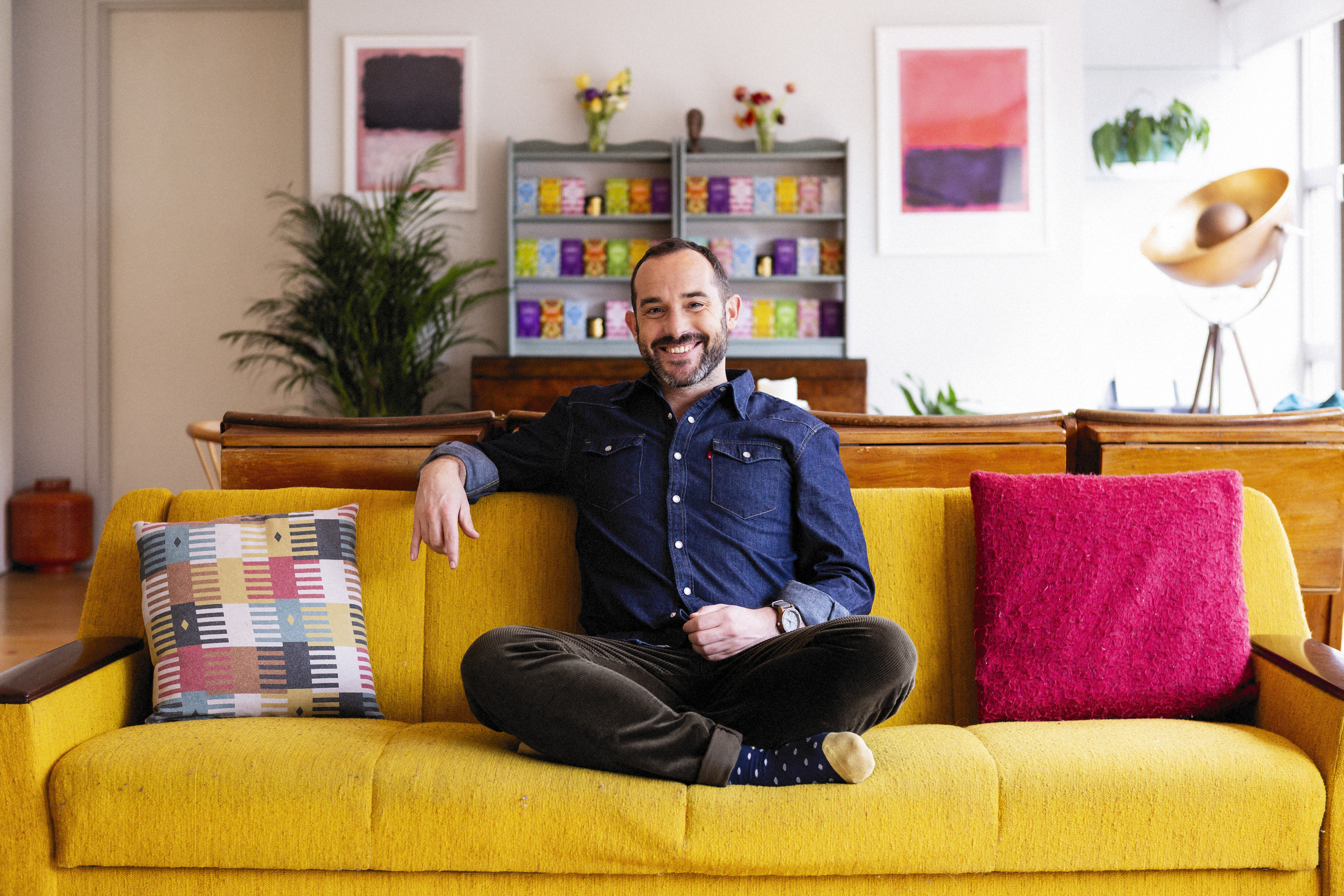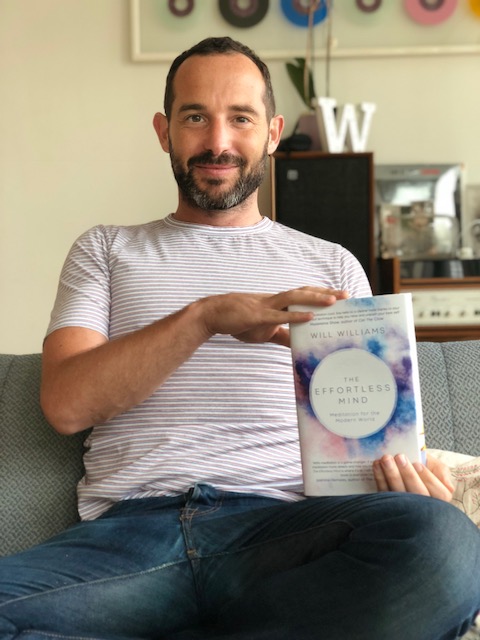
For anyone who wants to be happier, healthier and more productive, to feel capable and creative, and to enjoy better relationships, meditation is key. Whilst it won’t make all of your problems and challenges magically disappear, with regular practice, great things tend to unfold in every area of your life.
On a typical day, we wake up, we go straight to our emails or social media, we rush to work or school, we spend a day facing endless tasks, and have all these different people to deal with, not to mention social obligations and domestic chores.
It’s a lot to cope with, even for the most resilient of us. Keeping all those plates spinning causes us to always feel so busy that we don’t feel we have the time or space to catch a breath and appreciate the wonders of a life well lived.
Nobody wants to feel irritable, tired, or deflated. Nobody wants to feel anxious, worried, or angry. Yet we all find ourselves succumbing to these emotions more regularly than feels comfortable. This is where meditation comes in so handy.
How it Works
There are many different types of meditation and they all work in different ways. In the vast majority of cases, meditation will activate your relaxation response, something that is crucial in our highly adrenalised world.
Meditation also acts as a cornerstone to many of the other wellbeing variables such as sleep, diet and exercise. As Thrive has so helpfully shown the world, good sleep is fundamental to wellbeing, and the type of meditation we teach improves sleep by lengthening deep sleep cycles, increasing sleep efficiency and increasing total sleep time.
Beeja meditation also helps us have a healthier relationship with food. By improving our sleep quality, we release less of the hunger hormone ghrelin and more of the appetite suppressant leptin. By profoundly reducing stress levels, our body no longer craves fat and sugar to try and feed the stress. It also helps us to process emotions, which helps to ease comfort eating.
We find ourselves more connected to our bodies and our digestion, and we intuitively eat better food and in healthier quantities than we did before. We also have significantly more energy, meaning that we can motivate ourselves to exercise.
Arguably the most profound effect of all is that meditation can help de-excite your nervous system. When this happens, the nervous system begins to purge itself of the pain and trauma it is carrying. As a result, you feel lighter, freer and more balanced.
It also keeps your nervous system in good condition in the face of all the digital overwhelm we’re all now experiencing. Looking at screens all day has a seriously stimulating effect on your brain and wider nervous system, so having a daily practice that offsets this is crucial for your short term sense of calm and your long term health and wellbeing.
In essence, instead of trying to fix all of our issues from the outside in (conscious to sub-conscious), deep meditative practices enable you to free up the sub-conscious and fix things from the inside out. It’s a super efficient way to find your groove in life!
How To Make It Work For You
The most important thing is to find a practice that you find easy and which you can plug into daily life. If you wish for real and meaningful change to unfold in your life, consistency is key. With that in mind, try going for practices which are easy to do and don’t require you to clear your mind of all thoughts, that work even when you’re in a busy environment, and which are geared towards helping you have subtle experiences, rather than short term hits of feeling high.
More often than not, this will lead to the most integrated results. If the first one you try doesn’t work, try again until you find something that resonates. When you do, you’ll be in possession of a tool that will help you begin to live your fullest potential. From this platform of continual growth comes peace of mind and an ability to not only survive, but truly thrive. In the end, it’s not what happens to you that’s important, but how you respond, how you feel, and how you thrive in all circumstances that counts.
Extract from The Effortless Mind
The chronic levels of stress we’re seeing is one reason this form of meditation is such an essential tool for 21st- century life. The practice my team and I teach is incredibly effective when it comes to delivering increased levels of physical and psychological rest and repair, enhanced neurological functioning and greater resilience – all of which means that your reactions to stressful situations are much more balanced.
Researchers at UCLA hooked subjects up to every possible monitoring device – a face mask (to measure CO2), butterfly catheter (blood chemistry), pulse oximeter (oxygenation of the blood), EEG skullcap (brainwave output) and rectal thermometer (core temperature). In these conditions, participants began to say their personalised sounds in their heads, just as they would do normally.
What the researchers found astonished them. Respiration levels dipped considerably, indicating deep levels of relaxation akin to a hibernation state. Blood pressure tended to normalise. Heart rate fell on average by five beats per minute. Blood chemistry changed for the better. Core temperature dropped by a very significant two degrees, an indicator of meta- bolic rate falling and the body going into rest and repair mode. Most impressive of all was what researchers saw happening in the brain. When the subjects started to repeat their sound, their brainwave frequencies calmed down from their previously revved- up states. They began producing highly coherent alpha wave patterns (a powerful combination of brain signals linked to deep physical and mental relaxation) in all areas of the brain.
Alpha wave coherence helps us learn, be creative, memorise, and read the thoughts and emotions of others. In the beta state (the usual level of mind activity exhibited when you’re awake), the brainwave frequency is higher, which means that the brain tends to get cluttered by thoughts, making it altogether less capable and perceptive. That’s why achieving an alpha state, which techniques such as this form of meditation can elicit, is so important: because when the clutter is cleared away, your brain is able to work more efficiently.
The combination of these phenomena activates hugely significant changes within the mind and the body:
- Both enjoy significant periods of energy restoration, during which the brain – so often filled with a noisy internal monologue and obsessive worry – calms down
- The amygdala, which governs the stress response, becomes less active. Instead of firing at any old trigger, it begins to become more discerning as to what actually deserves a response.
- The hippocampus, part of the limbic system in your brain and responsible for consolidating information from short- memory to long- term memory, begins to grow
- The prefrontal cortex becomes much more active; your ability to learn new skills, prioritise tasks, solve problems and express yourself creatively all heighten
- The ability to feel more connected to yourself and others is improved. By enjoying a balanced flow of endorphins, and greater activation of your prefrontal cortex, you find that love, compassion and empathy begin to replace aggression, anxiety or sadness.
An Exercise for Stimulation Right Brain Activation (for creativity and development of emotional intelligence)
Getting lost in an activity is usually an excellent way to get your creative mojo flowing, and one simple way we can do this is to use your non-dominant hand to write or draw for five minutes. It’s a surprisingly effective way to activate your right brain, and with it your creativity. By using your ‘wrong’ hand, and doing this in a focused way, you will find yourself more creatively and emotionally attuned. You’ll also be more intuitive.
The Effortless Mind by Will Williams is published by Simon & Schuster on 2nd May £9.99 (available on Amazon here) for information about meditation classes please visit beejameditation.com

